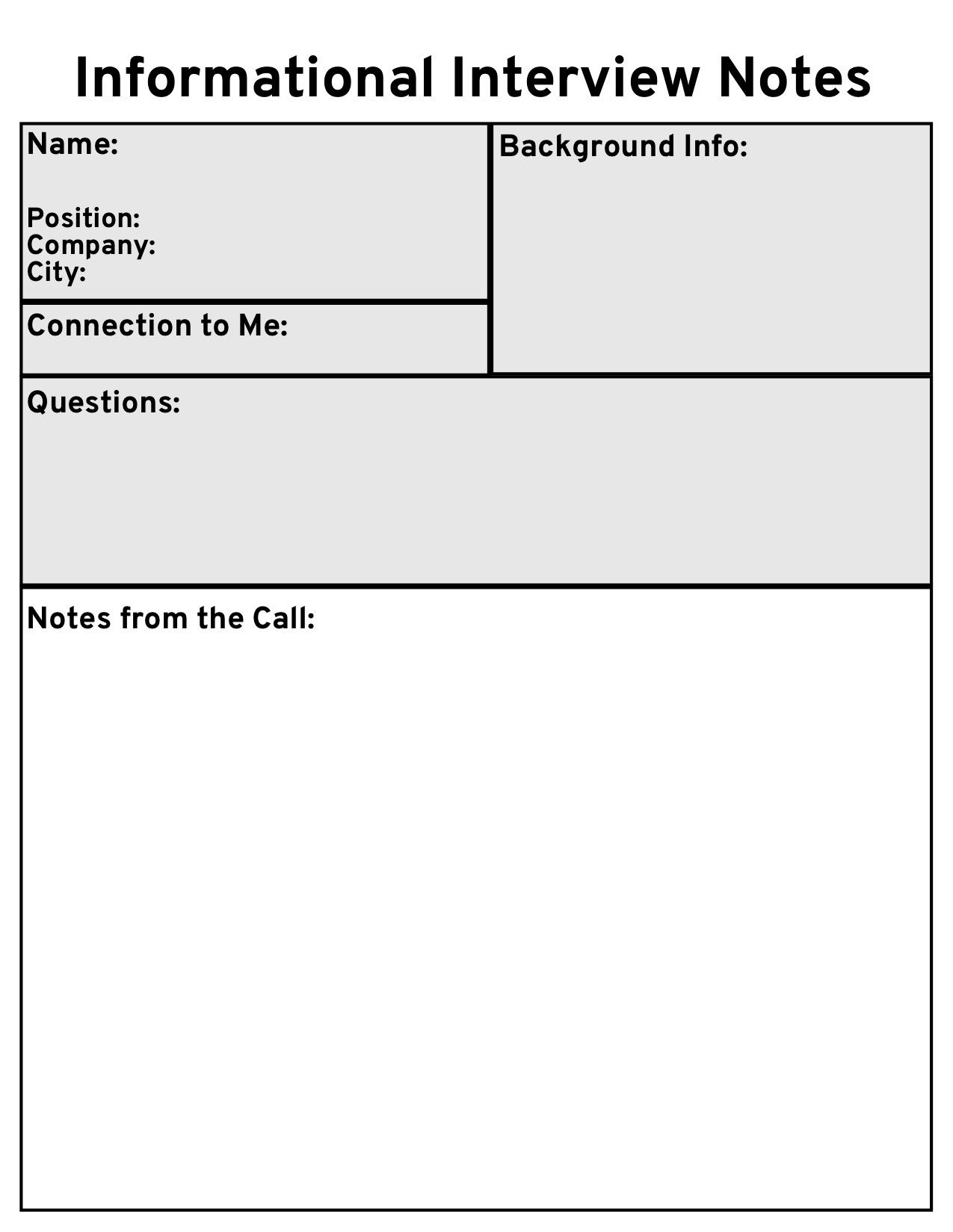Cheat SheetsHow to Run a Call
Prepare for every call. Before every single Informational Interview, you should always answer two questions: “Who am I talking to?” and “Which questions am I going to ask?” Consider using a consistent pre-call template like the following graphic organizer (from Chapter 13).
After the opening hellos, begin calls with a scripted, repeatable talk track. In this track, establish the context of why you reached out. In it, you’ll state a brief agenda to set expectations.
To give you some context about why I reached out, I’m currently in the music industry in Nashville, and I’m trying to figure out both what is next for me and the best way to break into the tech industry. My goal is just to ask you some questions about your path, experience, and time at Enron. I’ve been calling people to learn about what they do and what’s out there, and Jimothy spoke very highly of you. I am excited to talk today and I really appreciate you hopping on. [Pause to let them respond]
Ask great questions. Your questions are the foundation of the Informational Interview. Physically write down your questions before the call (I never wrote fewer than seven questions out of fear of drawing a mental blank). Here is a survey of my go-to questions, with full explanations in Chapter 15:
- What was your thought process in getting started with X?
- What’s the biggest skill you’ve developed in your current role?
- What is your advice for someone trying to break into {X industry}?
- Follow up questions.
Avoid certain types of questions to maintain credibility: closed-ended questions; questions that have nothing to do with the other person, their job, or their industry; and, questions that make it clear you did zero preparation and/or have no idea who they are.
Wrap the call smoothly by asking for an Informational Interview referral.
I’ve really appreciated you taking time out of your day to talk to me and give me some guidance. I’m definitely going to check out that blog post from Theranos’s CEO that you referenced. The company seems like it’s on a really cool path. The consulting insights were also really helpful. I’m going to keep learning about consulting. Is there anyone else in your Los Angeles (insert city / industry / role / company) consulting circle that you think I should reach out to for a call like ours, or that you’d feel comfortable referring me to speak to and learn from?
Use pen and paper. Take notes (preferably by hand) during the calls to allow yourself to capture more data and be more present in listening.
Type the notes as soon as possible. Revisit your handwritten notes to type them into a centralized document. Typing notes keeps you on track with action items and referrals—disorganization can make you quit. Typing also commits your notes to memory.
